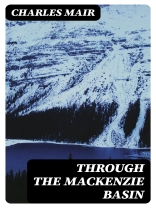In Charles Mair’s ‘Through the Mackenzie Basin’, the reader is taken on a journey through the rugged and remote landscapes of Western Canada. Mair’s vivid descriptions and lyrical prose paint a picture of the untamed wilderness and the struggles faced by those who dared to venture into these uncharted territories. Written in the late 19th century, the book reflects the romantic fascination with exploration and the Canadian frontier. Mair’s incorporation of Indigenous folklore and his deep connection to the land add layers of complexity to the narrative, making it a compelling read for those interested in Canadian literature and history. Charles Mair, a prominent Canadian poet and journalist, was inspired to write ‘Through the Mackenzie Basin’ after his own travels through the region. His firsthand experiences provided him with valuable insights into the landscape and the people who inhabited it, shaping the authenticity of his writing. Mair’s passion for the Canadian wilderness shines through in every page, making this book a valuable contribution to the literary canon. I highly recommend ‘Through the Mackenzie Basin’ to readers who enjoy adventure stories, historical narratives, and poetic prose. Mair’s work offers a unique perspective on Canada’s past and a glimpse into the untamed beauty of the Mackenzie Basin.
About the author
Charles Mair (1838–1927) was a Canadian poet and writer whose work encapsulated the spirit of the newly forming nation through its embrace of the wilderness and the creation of a distinct Canadian identity. Born in Lanark County, Ontario, Mair was an influential figure in the development of Canadian literature during the late 19th and early 20th centuries. His book, ‘Through the Mackenzie Basin’ (1908), is an important work that speaks to his adventurous spirit and his involvement in the North-West Rebellion of 1885. Mair served as a government courier and as such, traveled extensively throughout the Mackenzie Basin, an experience that heavily influenced his writings. The book is a rich account of his travels and observations, providing invaluable insights into the Canadian landscapes, the indigenous peoples, and the socio-political climate of the time. Mair’s literary style is characteristic of the period’s romantic nationalism, seeking to define and promote a unique Canadian cultural identity. His depictions of the northern wilderness and the challenges of frontier life contributed to the nation’s emerging narrative and were pivotal in shaping Canadian literature. Mair’s lifelong dedication to literature and national issues established him as a significant cultural figure in Canada.












